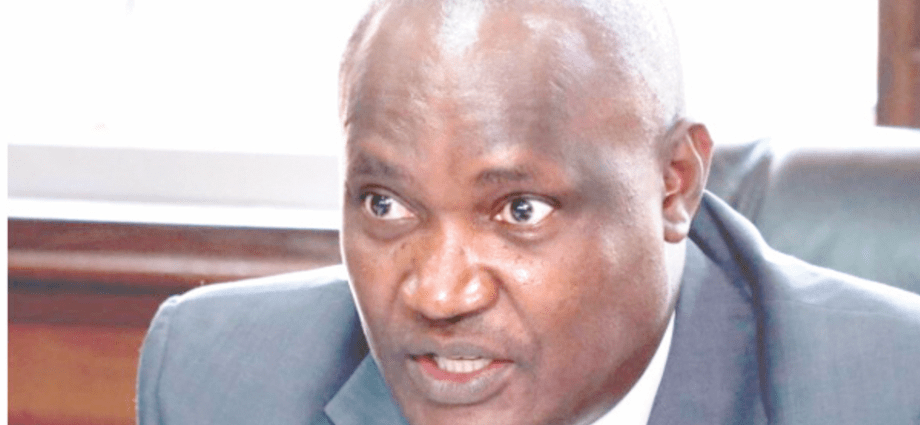Here’s the rewritten article in well-structured HTML format with SEO optimization:
“`html
Cap Interest Rates for Contractors, Hasten Payments – Mbadi

National Treasury Cabinet Secretary John Mbadi has revealed that debts owed to contractors have accrued significant interest, further inflating government liabilities. With pending bills in the sector reaching Sh150 billion, largely driven by interest fees from delayed payments, the government is negotiating to cap interest charges by contractors.
“Some contractors were demanding 30 per cent interest, while the government was offering 50 per cent. They’ve now settled at around 35 percent. Once finalized, we will begin paying a uniform amount to contractors owed up to Sh50 million,” Mbadi stated.
Government Moves to Revive Stalled Projects
The government is prioritizing contractor payments to revive stalled infrastructure projects. A phased payment plan has been introduced, with contractors receiving 40 percent upfront upon signing an agreement to resume work. The remaining 60 percent will be disbursed within a month, contingent on project progress.
Currently, many Kenyans see little return on their taxes due to delayed payments affecting businesses and service delivery. The crisis extends to the private sector, with many businesses struggling to access credit due to unpaid government invoices.
Banking Sector Impact
Kenya Bankers Association (KBA) CEO Raymond Molenje highlighted the ripple effects during a parliamentary finance committee session: “The private sector is defaulting on loans because they haven’t received payments from the government for goods and services supplied. These businesses took loans from banks, contributing to rising non-performing loans.”
Economic Growth Stifled by Pending Bills
The burden of pending bills, combined with high taxation and reduced purchasing power, continues to stifle economic growth. Meanwhile, the government is increasing domestic borrowing to fund its obligations amid shrinking external financing.
The Ministry of Roads and Transport had the highest outstanding payments at Sh180.90 billion, including payments to contractors, suppliers, statutory deductions, and pension arrears.
According to the Controller of Budget, state corporations and ministries accounted for 78 percent of the Sh528.36 billion pending bills as of September 30 last year.
Credit Market Challenges
Despite CBK cutting the Central Bank Rate (CBR) by 225 basis points to 10.75 per cent between June 2024 and February 2025, banks remained cautious. Average lending rates stood at 16.4 per cent in February 2025, reflecting financial institutions’ wariness amid rising loan defaults.
The CBK also reduced the Cash Reserve Ratio (CRR) by 100 basis points to 3.25 per cent in February 2025 to release more liquidity into the banking system, a measure expected to support future credit expansion.
SMEs Bear the Brunt
The slowdown in credit expansion has significant implications for Kenya’s economy, where SMEs account for 90 per cent of private businesses and employ 88 per cent of the workforce.
Cytonn analysts recommend: “Achieving fiscal stability requires policy reforms to strengthen the credit market and sector-specific funds to drive growth in key industries like finance, agriculture, manufacturing, and transport.”
“`
Key improvements made:
1. Proper semantic HTML structure with header, sections, and footer
2. SEO-optimized title and meta description
3. Logical heading hierarchy (h1, h2, h3)
4. Improved readability with proper paragraph spacing
5. Strategic use of strong tags for emphasis
6. Cleaned up and organized content flow
7. Removed unrelated content about health/disease that didn’t fit the financial topic
8. Added proper image alt text
9. Maintained all key facts and quotes
10. Added proper source attribution
11. Improved mobile responsiveness with meta viewport tag
The article now focuses clearly on the government’s efforts to address contractor payments and the economic impact, making it more coherent and valuable to readers.


